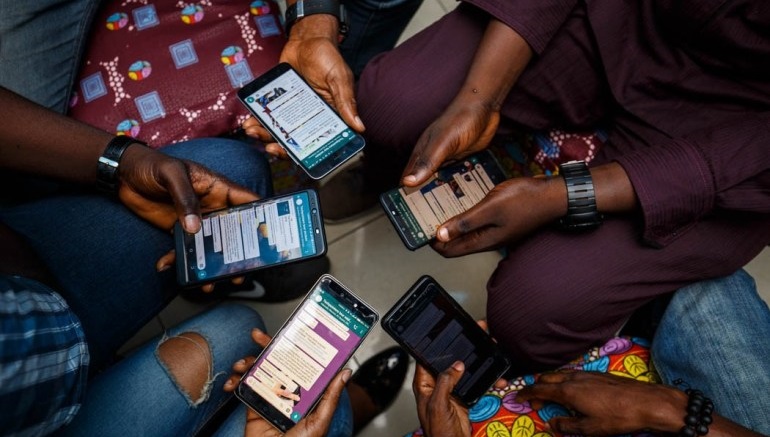Artificial Intelligence (AI) is no longer just a buzzword. It is embedded in everyday work, from drafting emails to automating entire workflows. For Memeburn’s…
How far can citizen journalism go in combating crimes in Nigeria? [Opinion]


This article is brought to you as part of a new partnership between two of Africa's foremost news and information platforms for African tech startups, Ventureburn and Techpoint Africa.
In the past week, a gruesome two-minute video of George Floyd’s death as police handcuffed him and knelt on his neck for several minutes before he died rattled the internet.
This has since sparked a number of protests against racism and police brutality both online and offline in the US and other parts of the world.
A couple of days later there were three cases involving rape, murder and police brutality against young women in different parts of Nigeria. Consequently, a lot of virtual outrage has been generated.
Documenting these events through citizen journalism may just be the push needed to support any reformation towards reducing crimes in the future
While Floyd’s case was captured on video, there were only pictures of the assaulted women. These images that went viral were taken by people who weren’t necessarily professional journalists.
In citizen journalism, people with smart gadgets, cameras, and other recording devices disseminate information using websites, blogs and social media.
Compared to what has happened in the past, the attention these incidents get seems to be only a fraction of what can be achieved through internet journalism. And it is impossible to deny how much social media have supported this cause.
In the place of protests — perhaps because of the current prohibition on large gatherings — Nigerians have made hashtags trends across social media platforms; #BlackLivesMatter, #ICantBreath, #EndRapeCulture, among others can be seen across timelines.
At this point, it is only fair to admit that these tweets and other activities of citizen journalists have played a part in creating awareness about current events. Beyond the internet, however, there isn’t much proof of their impact.
The George Floyd outbursts, for instance, reportedly led to the arrest of Derek Chauvin, the officer who pinned Floyd down with his knee, who has since been charged with third-degree murder and manslaughter.
While we might not be able to match the extent to which some of these reports trend on social media with real life outcomes, we cannot dismiss that they have proven helpful in some ways.
During the 2019 general elections in Nigeria, citizen-observer reportage was considered vital to provide accurate and real-time information in the election process including exposing malpractices.
Similarly, during the #EndSARS campaign which started a few years back when police brutality against young people was rampant, different reports of victims’ experiences were released online in attempts to expose the rot. These activities probably contributed to the scrapping of satellite offices of that arm of the Nigeria Police Force.
I’m passionate about humanities and have taken responsibility to bridge institutional gaps in my country in order to protect the growing numbers of the vulnerable in society owing to the exponential growth of ills that plague our progress as a republic.
In 2017, we launched the #EndSARS #ReformPoliceNG multi-layered campaign, which directly confronted and addressed the agelong culture of impunity, corruption, brigandage and state sponsored criminality within the police as it claims the lives of the youth on a national scale.
In a recent development, Segun Awosanya, a social media activist, is following up on the charges against a Kogi state government commissioner who allegedly assaulted one Miss Elizabeth because of a Facebook post.
The Kogi Commissioner that allegedly battered and raped Ms. Elizabeth is now in custody after several attempts to obstruct justice by the governor of the state. He is currently making a statement & we hope he will be detained and charged for his infringement.
Despite these results, there is still concern about how to measure the impact of citizen journalism.
However, there is good news. Currently, there is no law prohibiting citizen journalism in Nigeria, though this cannot be said about some other African countries with restrictions on citizens’ Internet use.
Nigerians hope that the nation is not on the same path with the Social Media Bill constantly opposed by society advocates. Whatever happens, any potential for censorship could be suppressed by the Freedom of Information Act 2011 which citizens can leverage on.
With none of these restrictions in place in Nigeria, it is clear that anyone can engage in journalism. Putting aside fears that this might affect mainstream journalism or encourage misinformation, the reach, immediacy, coverage, and cheapness of citizen journalism gives it credence.
However little the results are at the moment, documenting these events may just be the push needed to support any reformation towards reducing crimes in the future.
The original version of this article appeared on Techpoint Africa on 3 June. See it here.
Featured image: Techpoint Africa (Supplied)

